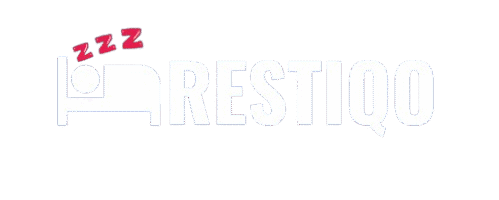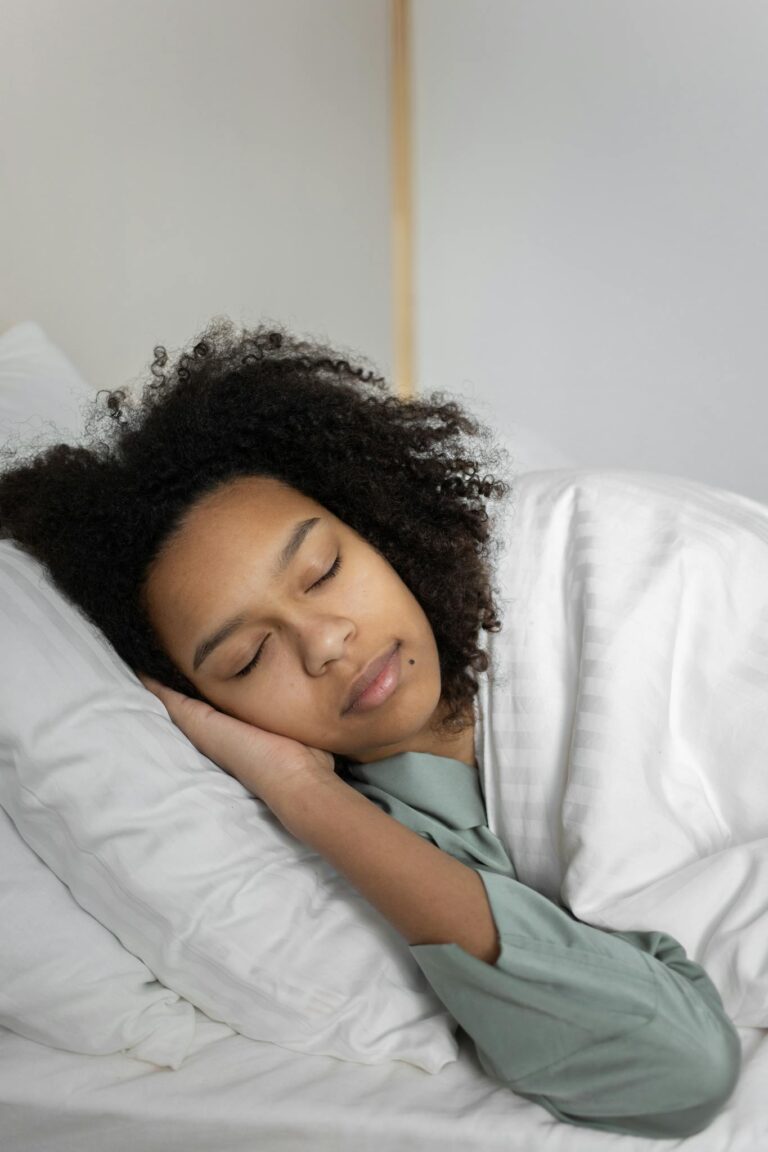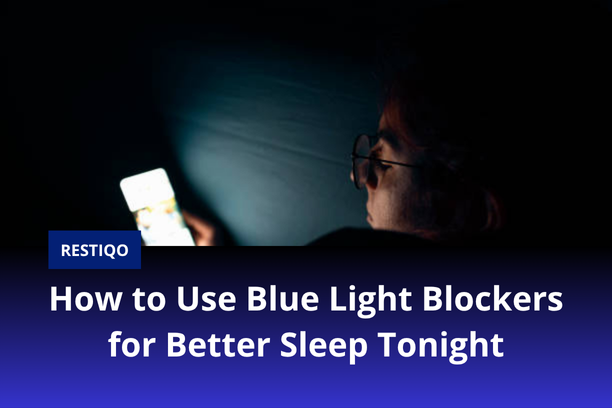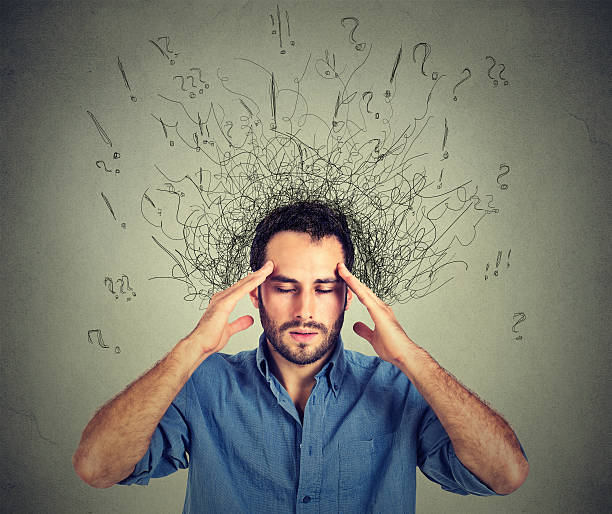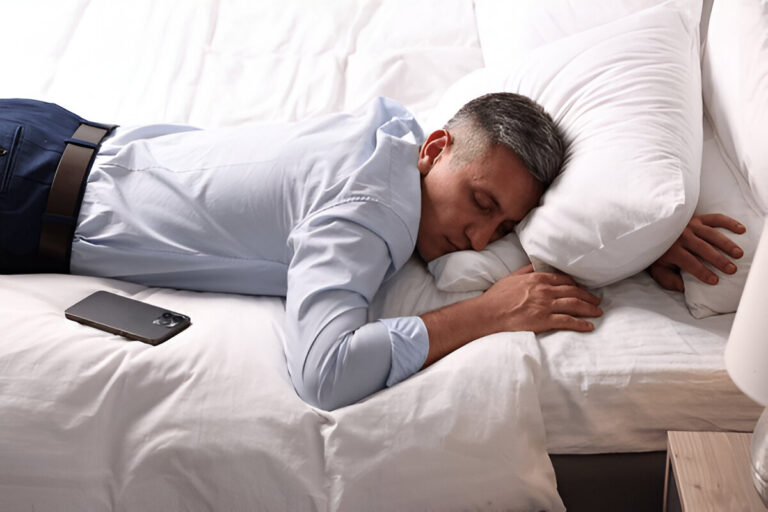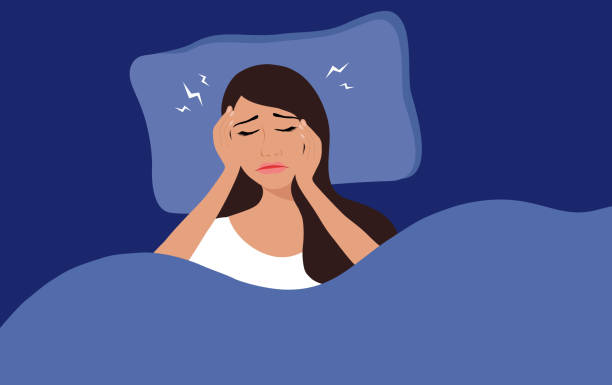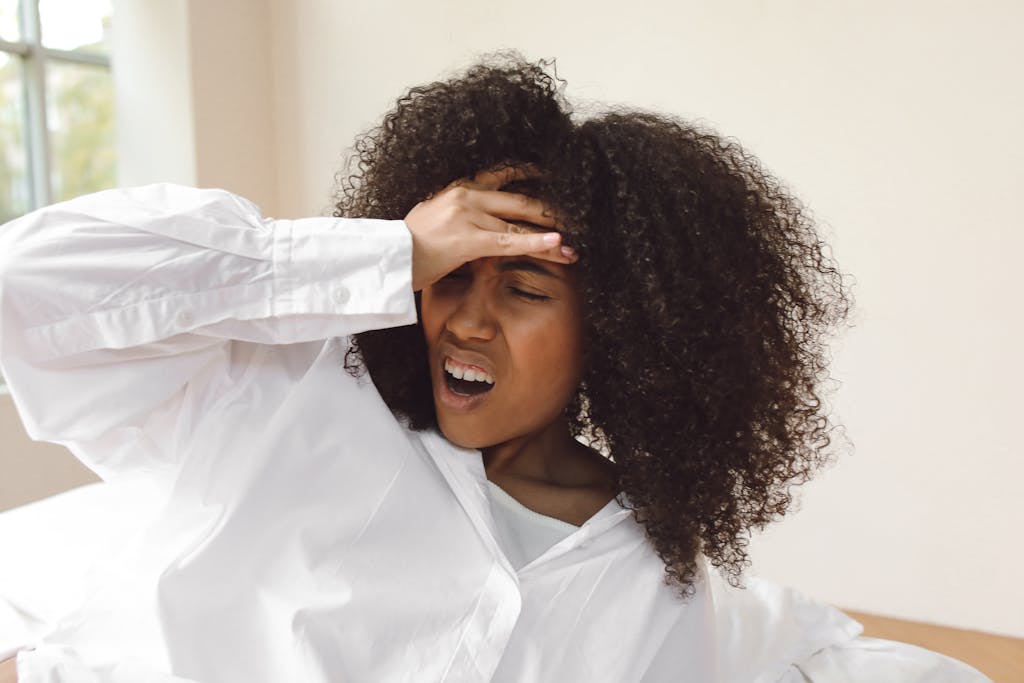
If you’re waking up groggy, foggy, or already daydreaming about your next nap — even after clocking six hours in bed — this article is for you.
You’re not lazy. You’re not broken. You’re just misinformed about how sleep actually works.
The hard truth? 6 hours of sleep is usually not enough.
But more importantly, it’s not just how long you sleep — it’s how you sleep.
In this guide, we’ll break down exactly why six hours often leads to exhaustion, even if you think you got a decent night’s rest. You’ll learn:
- How sleep stages like REM and deep sleep affect recovery
- Why waking up at the wrong time ruins your energy
- What your circadian rhythm has to do with all of this
- And most importantly — how to actually wake up feeling rested
Let’s cut through the myths and fix the fatigue, starting now.
Why Am I Tired After 6 Hours of Sleep?
Six hours of sleep isn’t long enough for most adults to complete the 4–5 full sleep cycles the body needs for true recovery. On top of that, when you wake up during the cycle matters just as much as how long you were asleep.
The Illusion of “Enough Sleep”
You’ve probably heard someone say, “I only need 6 hours. I function fine.”
That might be true… for genetic outliers. For the rest of us? Six hours puts your brain and body into a mild state of sleep debt that piles up quickly over the week leading to:
- Brain fog
- Low mood
- Poor decision-making
- Sugar cravings
- Increased cortisol levels
The result? You might be sleeping “enough” to survive but not to thrive.
Sleep Quality > Sleep Quantity
What most people miss is that 6 hours doesn’t guarantee high-quality sleep. You might have:
- Slept through mostly light sleep
- Missed REM entirely
- Woken up in the middle of deep sleep, triggering “sleep inertia” (that zombie feeling)
The fix isn’t just more sleep. It’s better sleep.
Let’s dig into the mechanics of it.
Understanding Sleep Stages: REM, Deep, and Light
The 90-Minute Sleep Cycle
Your body cycles through several sleep stages roughly every 90 minutes:
- Light Sleep (Stage 1 & 2) – Your body slows down. You’re easily woken.
- Deep Sleep (Stage 3) – This is where physical recovery and immune repair happen.
- REM Sleep (Stage 4) – Your brain processes emotions, solidifies memory, and resets hormones.
Every complete cycle includes all three and you need multiple full cycles for your body and brain to recover.
So what happens with just 6 hours?
You’re likely cutting off the final REM-heavy cycles, meaning your mental clarity, creativity, and decision-making never get a full reboot.
Why Waking Mid-Cycle Destroys Your Energy
Wake up in the middle of deep sleep, and it’s like yanking a phone charger out of the wall at 4%. Your brain hasn’t finished its process.
That’s why people using 90-minute sleep cycle calculators often report feeling more rested after 6.75 hours than after a flat 6.
The real goal isn’t just “don’t wake up too early.”
It’s: wake up at the right moment — at the end of a full sleep cycle, ideally during light sleep.
💡 REM & Deep Sleep = Restorative Power
Missing deep sleep? Your body stays inflamed, and you feel physically drained.
Skip REM? Your emotions, stress tolerance, and focus go down the drain.
Most of that magic happens in the later stages of the night — meaning if you only sleep six hours, you’re literally short-changing the most critical recovery phases.
5 Reasons You Wake Up Tired After 6 Hours
Even if you’re convinced 6 hours should cut it, your body might disagree for a few sneaky reasons. Here’s why:
1. Circadian Rhythm Misalignment
Your circadian rhythm is your body’s internal clock, and it’s not just about when you fall asleep — it controls how deeply you sleep and when your energy peaks and crashes.
If your sleep doesn’t align with your natural rhythm (e.g., you go to bed at midnight and wake up at 6AM when your body prefers 10PM–6AM), you may:
- Miss out on REM-rich cycles
- Wake up mid-cycle
- Feel groggy even after “enough” sleep
Fix: Go to bed and wake up at the same time daily — even on weekends. This reinforces your rhythm and increases sleep efficiency.
2. Incomplete Sleep Cycles
As we explained earlier, your body runs on 90-minute cycles. Six hours only gives you 4 of those, and that’s only if you fall asleep instantly (which nobody does).
Even slight delays in falling asleep or waking early mean:
- You’re interrupting a cycle
- You’re skipping late-night REM
- You’re stacking fatigue over time
Fix: Aim for 7.5 hours (5 full cycles), or use a sleep tracking app to experiment with sleep cycle timing (e.g., 6.75 hours instead of 6).
3. Poor Sleep Environment
If your room is too bright, noisy, hot, or filled with blue light from screens, it doesn’t matter how long you’re in bed — you’re not hitting restorative sleep.
Common culprits:
- LED lights suppressing melatonin
- Room temperature above 70°F (21°C)
- Street noise or snoring
- Mattress and pillow issues
Fix:
- Use blackout curtains
- Wear blue light blocking glasses 2 hours before bed
- Cool your room to 65–68°F
- Add white/pink noise for consistency
💡 Mid-Content CTA
Curious if you’re stuck in the wrong sleep stage?
👉 Download our free Sleep Cycle Tracker and find out tonight.
📱 4. Blue Light and Melatonin Suppression
Blue light from screens (phones, TVs, laptops) blocks melatonin, your sleep hormone.
That delays both:
- Sleep onset (how fast you fall asleep)
- Sleep quality (how much REM/deep sleep you get)
Even if you still log six hours, you may lose the first two critical stages of your cycle to shallow, fragmented sleep.
Fix:
- Cut screen time 1–2 hours before bed
- Use apps like f.lux or Night Shift
- Wear amber-lens blue light glasses after sunset
5. Stress, Hormones, or Health Issues
Let’s not ignore the internal stuff.
If your body is stressed, inflamed, or hormonally out of whack, sleep won’t feel restorative — no matter how long you’re out.
Red flags include:
- Waking at 3–4AM regularly
- Racing thoughts before bed
- Consistently groggy mornings despite early nights
Fix:
- Supplement with magnesium glycinate
- Use guided breathing or meditation to calm cortisol
- Rule out sleep apnea, anemia, or thyroid issues if fatigue persists
Is 6 Hours of Sleep Ever Enough?
The Genetic Outliers (And Why You’re Probably Not One)
Yes, there are rare unicorns who can thrive on 6 hours of sleep. They’re called “short sleepers,” and their bodies complete full sleep cycles faster than average.
These people have a genetic mutation in the DEC2 gene that allows them to:
- Get more deep and REM sleep in less time
- Wake up feeling fully recharged
- Function at peak performance with just 5–6 hours
Here’s the catch:
This applies to less than 1% of the population.
If you’re reading this article and questioning your sleep… you’re probably not in that 1%.
Short Sleep Syndrome: Rare or Overused Excuse?
“Short sleep syndrome” is a medically recognized condition but many people claim the title without being diagnosed.
In reality, most folks functioning on 6 hours are just adapting to chronic fatigue, not thriving with high energy.
Common signs you’re not getting enough:
- You rely heavily on caffeine or naps
- Your mood is unstable
- You crash hard on weekends
- You feel mentally slower in the morning
How to Test Your Sleep Needs (Without Guesswork)
Don’t just “push through.” Try this experiment:
- For 7 consecutive nights, go to bed 30–60 minutes earlier
- Wake up at the same time every day
- Track how quickly you fall asleep, and how you feel upon waking
If your energy, mood, and focus improve — even slightly — you were running a sleep deficit.
And guess what? You just proved that 6 hours wasn’t working.
TL;DR:
- 6 hours of sleep is enough only if you’re genetically wired for it (rare).
- For 99% of us, it means cutting into crucial REM/deep sleep, leading to brain fog and burnout.
- If you think you’re fine on 6, test it. The results will speak for themselves.
How to Wake Up Feeling Rested (Even If You Sleep Less)
1. Align Sleep with Your Circadian Rhythm
The most underrated sleep hack? Timing.
When your sleep is aligned with your natural circadian rhythm, even shorter nights can feel more restorative.
Signs you’re misaligned:
- You’re wide awake at 10PM but exhausted at 7AM
- You wake groggy no matter how early you go to bed
- You get bursts of energy late at night
🛠 Fix:
- Go to bed and wake up at the same time every day
- Expose yourself to natural morning light for 15–20 minutes
- Avoid bright artificial light after 8PM
This stabilizes your internal clock so you fall asleep faster and cycle more efficiently.
2. Use Sleep Cycle Tracking or Smart Alarms
Waking up mid-cycle = instant brain fog.
Waking up at the end of a cycle = clarity.
That’s where sleep tracking apps or smart alarms help. They detect your movement and wake you during lighter sleep—when your body is ready.
🛠 Tools to try:
- Sleep Cycle app (iOS/Android)
- Whoop or Oura Ring (wearable trackers)
- Manual 90-minute cycle planning (aim for 6.75 or 7.5 hrs)
Pro Tip: If you’re setting an alarm, try for 6 hrs and 45 minutes, not a flat 6. You’ll likely wake at the end of a cycle instead of the middle.
3. Improve Your Sleep Environment
You could sleep 9 hours in a noisy, hot, or bright room and still wake up like you’ve been hit by a truck.
Optimize your space for deep, uninterrupted sleep:
✅ Cool it down — aim for 65–68°F
✅ Darken it — blackout curtains or eye mask
✅ Quiet it — white/pink noise machine or fan
✅ Declutter — yes, even visual clutter raises stress hormones
If your bedroom feels like a spa, your body will shift into restorative sleep faster—even if time is limited.
4. Build a Pre-Sleep Routine That Actually Works
Consistency = faster sleep onset = more usable sleep time.
A good wind-down routine tells your brain, “We’re closing shop now.”
Try stacking these habits:
- 90 minutes before bed: Blue light blockers ON
- 60 minutes before: Magnesium glycinate (200–400mg)
- 30 minutes before: Stretching, reading, or light journaling
- 10 minutes before: Box breathing or guided meditation
Don’t underestimate the power of repetition. Your brain loves cues and rituals. Use them to your advantage.
TL;DR:
You won’t always hit 8 hours. But you can make 6 hours work harder by:
- Syncing with your circadian rhythm
- Avoiding mid-cycle wakeups
- Optimizing your room
- Using wind-down rituals to sleep better, not just longer
How to Wake Up Feeling Rested (Even If You Sleep Less)
1. Align Sleep with Your Circadian Rhythm
The most underrated sleep hack? Timing.
When your sleep is aligned with your natural circadian rhythm, even shorter nights can feel more restorative.
Signs you’re misaligned:
- You’re wide awake at 10PM but exhausted at 7AM
- You wake groggy no matter how early you go to bed
- You get bursts of energy late at night
🛠 Fix:
- Go to bed and wake up at the same time every day
- Expose yourself to natural morning light for 15–20 minutes
- Avoid bright artificial light after 8PM
This stabilizes your internal clock so you fall asleep faster and cycle more efficiently.
2. Use Sleep Cycle Tracking or Smart Alarms
Waking up mid-cycle = instant brain fog.
Waking up at the end of a cycle = clarity.
That’s where sleep tracking apps or smart alarms help. They detect your movement and wake you during lighter sleep — when your body is ready.
🛠 Tools to try:
- Sleep Cycle app (iOS/Android)
- Whoop or Oura Ring (wearable trackers)
- Manual 90-minute cycle planning (aim for 6.75 or 7.5 hrs)
Pro Tip: If you’re setting an alarm, try for 6 hrs and 45 minutes, not a flat 6. You’ll likely wake at the end of a cycle instead of the middle.
3. Improve Your Sleep Environment
You could sleep 9 hours in a noisy, hot, or bright room and still wake up like you’ve been hit by a truck.
Optimize your space for deep, uninterrupted sleep:
✅ Cool it down — aim for 65–68°F
✅ Darken it — blackout curtains or eye mask
✅ Quiet it — white/pink noise machine or fan
✅ Declutter — yes, even visual clutter raises stress hormones
If your bedroom feels like a spa, your body will shift into restorative sleep faster even if time is limited.
4. Build a Pre-Sleep Routine That Actually Works
Consistency = faster sleep onset = more usable sleep time.
A good wind-down routine tells your brain, “We’re closing shop now.”
Try stacking these habits:
- 90 minutes before bed: Blue light blockers ON
- 60 minutes before: Magnesium glycinate (200–400mg)
- 30 minutes before: Stretching, reading, or light journaling
- 10 minutes before: Box breathing or guided meditation
Don’t underestimate the power of repetition. Your brain loves cues and rituals. Use them to your advantage.
TL;DR:
You won’t always hit 8 hours. But you can make 6 hours work harder by:
- Syncing with your circadian rhythm
- Avoiding mid-cycle wakeups
- Optimizing your room
- Using wind-down rituals to sleep better, not just longer
Tools and Habits That Can Help
You don’t need to overhaul your entire life to sleep better. But you do need to stop winging it.
Here are four proven tools and habits that actually move the needle especially if you’re dealing with 6-hour nights more often than you’d like.
1. Blue Light Blockers 🕶️
Blue light from screens suppresses melatonin and if you’re watching Netflix or replying to emails at 10PM, you’re sabotaging your own sleep.
Blue light blockers are specialized glasses that filter out this sleep-wrecking light so your body can start producing melatonin on schedule.
🛠 Recommendations:
- Use amber or red lenses 2–3 hours before bed
- Brands: Swanwick, BLUblox, or budget-friendly Uvex
- Pair with “Night Shift” or f.lux on all devices
📌 Alt text tip: Blue light blocking glasses next to a phone glowing at night.
2. Magnesium (Your Sleep Mineral MVP)
Magnesium is critical for calming your nervous system and regulating melatonin.
But most people are deficient — thanks to stress, processed food, and caffeine.
🛠 What to Use:
- Magnesium glycinate or threonate (not oxide)
- Dose: 200–400mg, taken 60–90 minutes before bed
- Bonus: Helps with nighttime muscle twitching and anxiety too
📲 3. Sleep Trackers and Apps
Want to fix something? Track it.
Modern sleep trackers give you insight into:
- How long you actually sleep
- How much time you spend in REM and deep stages
- What times are best to wake up (based on your cycle)
🛠 Top Sleep Tracking Tools:
- Oura Ring – best for deep insights, minimal fuss
- Whoop Band – tracks strain and recovery
- Sleep Cycle App – smart alarm + insights, low-tech option
Pro tip: Use your tracker to test different bedtimes. Small shifts = big results.
4. CBT-i & Sleep Restriction Therapy
If your issue isn’t just duration but falling or staying asleep, Cognitive Behavioral Therapy for Insomnia (CBT-i) is the gold standard.
What it does:
- Rewires your brain to stop associating bed with stress
- Builds consistency and confidence in your sleep patterns
- Helps you fall asleep faster, stay asleep longer, and wake up clearer
🛠 Where to start:
- Try apps like Sleepio or CBT-i Coach (free, built by VA + DoD)
- Or find a CBT-i certified therapist or course
TL;DR:
Don’t just “try harder” to sleep. Equip yourself.
The right tools — blue light blockers, magnesium, trackers, and CBT-i — turn effort into results.
When to Talk to a Doctor About Persistent Fatigue
When Better Sleep Isn’t Fixing the Problem
Truth is: Not all tiredness is sleep-related.
If you’ve optimized your environment, locked in your rhythm, and ruled out poor habits… and nothing’s changing? It could be something deeper and that’s not something a blue light filter can fix.
Red Flags That Point to a Medical Issue
Pay attention to these signs. If they sound familiar, book an appointment with a medical provider:
- Loud snoring + gasping during sleep (you might have sleep apnea)
- Waking multiple times per night without reason
- Dry mouth or headaches in the morning
- Constant fatigue, even after full nights of sleep
- Cold intolerance, hair loss, or unexplained weight changes
- Daytime sleepiness that makes driving or focusing difficult
- Mood swings, depression, or brain fog that persist beyond sleep issues
These could point to:
- Sleep apnea (you stop breathing briefly during sleep)
- Thyroid dysfunction
- Iron deficiency/anemia
- Chronic fatigue syndrome
- Hormonal imbalances (like low testosterone or cortisol dysregulation)
How to Start the Conversation With Your Doctor
Don’t just say “I’m tired.” Walk in with data:
✅ Track your sleep for 7–14 nights
✅ List your symptoms clearly
✅ Note your sleep hygiene habits (so they know you’ve tried)
✅ Ask for a sleep study if you suspect apnea or poor quality
TL;DR:
If good sleep hygiene isn’t solving the exhaustion, your body might be waving a red flag.
The smartest move? Get tested. Rule out the big issues early.
Conclusion:
If you’ve been wondering, “Why am I tired after 6 hours of sleep?” — now you know it’s not just about the clock. It’s about the quality, timing, and depth of your sleep.
For most people, 6 hours simply isn’t enough to complete the critical 4–5 full sleep cycles your brain and body need to recharge. Even if you manage to scrape by on that schedule, the cracks will eventually show through fatigue, poor focus, irritability, or stalled performance.
The good news? You don’t need perfection. You need a system.
Start by:
- Respecting your circadian rhythm
- Blocking blue light before bed
- Optimizing your sleep environment
- Tracking your cycles to wake at the right time
- Giving yourself permission to prioritize recovery
Better sleep isn’t a luxury, it’s the foundation of everything you do while awake.
Frequently Asked Questions
Is 6 hours of sleep enough for adults?
For most adults, no. The CDC and Sleep Foundation recommend 7–9 hours per night. Six hours often cuts off critical REM and deep sleep stages, leading to poor recovery, fatigue, and cognitive slowdown. Only about 1% of people have a genetic trait that allows them to thrive on less.
Why do I still feel tired after sleeping 6 hours?
Because sleep quality matters more than quantity alone. You may be waking mid-cycle, missing REM sleep, or experiencing sleep fragmentation from stress, blue light, or an inconsistent schedule. Six hours often isn’t enough to complete all recovery phases.
Can I train my body to need less sleep?
You can train your schedule, but not your biology. While you might adapt to sleeping less, it typically comes with a cost: lower focus, reduced memory, mood issues, and long-term health risks. True short sleepers are rare genetic exceptions — not a goal to chase.
How do I know if I’m getting quality sleep?
Signs of quality sleep include falling asleep in under 20 minutes, staying asleep through the night, waking up without grogginess, and feeling focused and alert during the day. Tools like sleep trackers, Oura, or the Sleep Cycle app can help quantify it.
What’s the best sleep cycle length?
A full sleep cycle lasts about 90 minutes. Most adults need 4–5 full cycles per night — meaning 6 to 7.5 hours of actual sleep. Waking at the end of a cycle (during light sleep) leads to easier wake-ups and more mental clarity.
